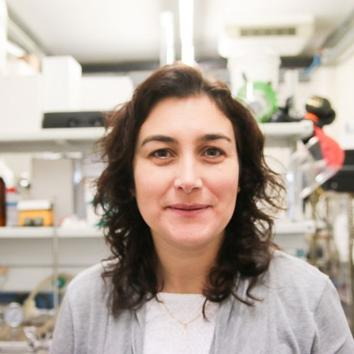Novel Heterogeneous Catalysts for Advanced Oxidation Processes (AOPs) II
A special issue of Catalysts (ISSN 2073-4344). This special issue belongs to the section "Environmental Catalysis".
Deadline for manuscript submissions: closed (31 March 2023) | Viewed by 1580
Special Issue Editors
Interests: water treatment; advanced oxidation processes (AOPs); heterogenenous catalysis; organic and inorganic pollutants; catalytic ozonation
Special Issues, Collections and Topics in MDPI journals
Interests: heterogeneous catalysis; air and water treatment; hydrogenation and oxidation reactions; energy conversion; preparation and characterization of catalysts and materials; smart textiles
Special Issues, Collections and Topics in MDPI journals
Interests: Advanced Oxidation Processes (AOPs); organic pollutants; environmental applications; metal-free catalysts; carbon-based catalysts
Special Issues, Collections and Topics in MDPI journals
Special Issue Information
Dear Colleagues,
This issue is a continuation of the previous successful Special Issue “Novel Heterogeneous Catalysts for Advanced Oxidation Processes (AOPs)”.
With the increasing global usage of water and the continuous addition of contaminants to water sources, new challenges associated with the abatement of organic pollutants, particularly those that are refractory to conventional water and wastewater treatment technologies, have arisen. Advanced oxidation processes (AOPs) present a competitive alternative to promote the oxidation of organic contaminants by strong oxidative radicals generated from oxygen, ozone, wet peroxide, and UV radiation. In addition, the use of catalysts not only improves efficiency, but may present remarkable cost advantages for practical applications of AOPs in the abatement of several pollutants. In this Special Issue of Catalysts, we invite authors to submit original research papers focused on the synthesis and characterization of novel heterogeneous catalysts and their uses in advanced oxidation processes for the removal of organic pollutants from aqueous solutions.
Dr. Carla Orge
Dr. Olívia Salomé G.P. Soares
Dr. Raquel Pinto Rocha
Guest Editors
Manuscript Submission Information
Manuscripts should be submitted online at www.mdpi.com by registering and logging in to this website. Once you are registered, click here to go to the submission form. Manuscripts can be submitted until the deadline. All submissions that pass pre-check are peer-reviewed. Accepted papers will be published continuously in the journal (as soon as accepted) and will be listed together on the special issue website. Research articles, review articles as well as short communications are invited. For planned papers, a title and short abstract (about 100 words) can be sent to the Editorial Office for announcement on this website.
Submitted manuscripts should not have been published previously, nor be under consideration for publication elsewhere (except conference proceedings papers). All manuscripts are thoroughly refereed through a single-blind peer-review process. A guide for authors and other relevant information for submission of manuscripts is available on the Instructions for Authors page. Catalysts is an international peer-reviewed open access monthly journal published by MDPI.
Please visit the Instructions for Authors page before submitting a manuscript. The Article Processing Charge (APC) for publication in this open access journal is 2700 CHF (Swiss Francs). Submitted papers should be well formatted and use good English. Authors may use MDPI's English editing service prior to publication or during author revisions.
Keywords
- advanced oxidation processesing
- water treatement
- organic pollutants
- heterogeneous catalysts







